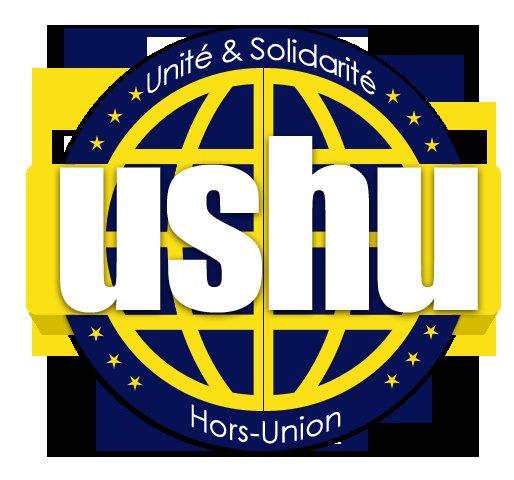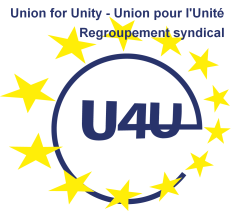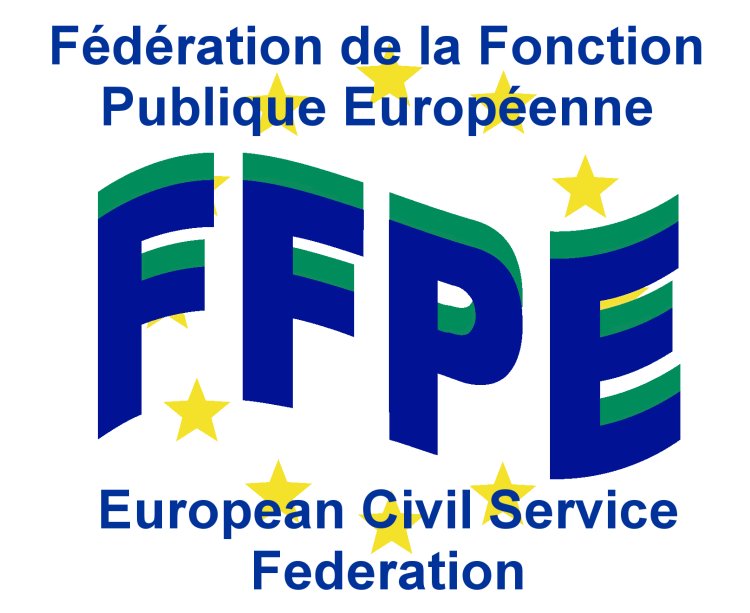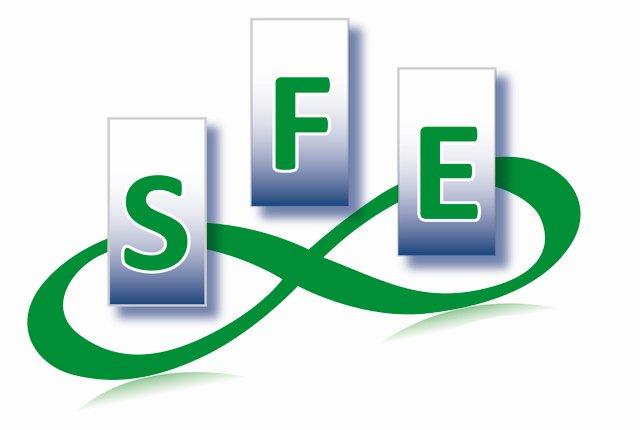
The “Near you”
EEAS news
bulletin
by U4U, USHU, Conf-SFE, FFPE
 |
The “Near you” by U4U, USHU, Conf-SFE, FFPE |
Careers: we need collective thinking!Staff at the EEAS are not satisfied with how their careers are developing. Problems are increasing due to the budgetary situation, which means controlling costs and therefore jobs. Most of the staff from the Member States are also hampered by career development, limiting the opportunities for mobility. Since 2014, careers have also been restricted by the provisions of the new Staff Regulations limiting access to end-of-career grades for ASTs and ADs. That is probably why the new Secretary General, Helga Schmid, conscious of the situation, established two working groups, one on careers, the other on equal opportunities, although it is open to question whether this separated the two problems, as equal opportunities is a cross-cutting issue. We believe a working group to consider the issue of interinstitutional mobility was also required, as part of the problem stems from its inadequate and asymmetric character: there are far more new staff arriving at the EEAS than departing to other European institutions and services. We think that the administration has taken a welcome initiative, even though the composition of these groups does not faithfully reflect the sociology of the EEAS, and NEAR You, as a representative organisation, has no role to play. Although excluded by the Staff Committee, we intend to share our thoughts. We are taking this opportunity to call on all staff to pass your ideas up the line: our initial comments are outlined below. Finally, we believe that once the results of the working groups are known, it will be helpful to discuss them with all staff, in seminars run by each directorate. The desired improvements are everyone's concern.
|
Careers at the EEAS: the analysis!It should be noted that no one at the EEAS currently has a career in the administrative sense of the term. Yes, there are documents: for the ADs, however, nothing has so far been done to implement them more than two years after they were adopted. It is worse for the AST grades, where the results of the discussion have not even been finalised! Thus, in spite of the policy pursued by the Administration for some years and the action of the staff representatives, most of us still occupy posts that we have achieved by chance, at best by the fortunate coincidence of the rotation/mobility schedule and a request made at the right time, but in most cases by default. Occasionally, some of us find ourselves outside of the system. The outlook for the CA and AL grades is not encouraging. Unlike the national diplomatic services, there has been nothing predictable or rational about the series of appointments that show no evidence of being the logical result of a pre-established career path. The worst case is undoubtedly reserved for the CAs (especially those on fixed-term contracts) and some ATs (the worse off) whose presence is undoubtedly limited by the Staff Regulations over time, who do not know until the last moment whether their contract will be renewed or on what terms. There is also a permanent shortfall of management posts, which does not provide for the fluid management of staff returning to HQ in the context of rotation. For other members of staff, when the mobility/rotation sequence is mandatory, it is a series of random movements. There are virtually no assignments made in the interests of the service and, as a result of this, the posts are advertised, usually openly in some cases, to the other institutions and the Member States, which precludes any possibility of forward planning. It is therefore necessary to establish and document a career progression for each staff member in line with the staff categories and to acquire the resources to implement this. The criteria for progression are essentially those used in the existing papers referred to above: alternating experience (HQ, delegations, horizontal services) and establishing pathways with appropriate training to possibly access management or expert posts, while retaining a mobility system that is also inter-institutional. However, it would require the will and the resources to match ambitions beyond the political declaration of intent for this discussion to bear fruit and end the current frustrations of all categories of staff.
|
Mobility: at the heart of HR policy.Career management is experiencing a serious difficulty: the listlessness of the mobility policy and organisation. This must be made available to all categories of staff. It must be flexible enough to adapt to individual circumstances, but also restrictive enough to avoid certain posts and geographical areas becoming inaccessible. There must also be scope for it to be monitored and personalised by Human Resources. The planning must make it possible to reserve enough posts to enable a logical career sequence, establish an element of predictability, introduce flexibility and plan for inter-institutional fluidity. Consequently, not all posts can be systematically open to everyone, in particular to external recruitment, otherwise there would be no career management logic over time, unless there is a continued internal reliance on interchangeable non-specialists, without any prospects of progression and without recognition of their experience. For this, it would be necessary to start discussions on how to develop talents within a single career in order to avoid the eternal constraints linked to the budget and the staffing table. A skills recognition system might make up for some of the shortcomings of the present system and overcome the constraints related to the fall in promotions and the rise in the retirement age. Thus, in the Delegations, for example, although there are no management posts at the EEAS, a pathway making it possible to recognise those frequently called on to replace Heads of Delegation could enable these individuals to at least benefit from a title that supports them in their role. At Headquarters, a system of formal coaching by the most experienced staff for new entrants could also create new prospects. We rely on you to share your thoughts with us and we promise to pass them on to inform the debate!
|
Preventive medicine: an expense or an investment?The preventive medicine programmes covered by the Joint Sickness Insurance Scheme (different from the mandatory annual medical visit) were modified in 2015. Some examinations were cancelled, the frequency of the programmes revised, and access to preventive medicine withdrawn for some beneficiaries. In 2014, the administration stressed the need to revise these programmes, which sometimes included too many major and expensive examinations that could also involve too many false positive results. The staff representation within the Sickness Insurance Management Committee (CGAM) supported the principle of a review, the goal being to identify the best possible programmes, especially in the light of scientific developments relating to screening. New screening programmes were therefore introduced in July 2015, also resulting in reduced prevention. However, it is not certain that they were designed with any concern for the optimisation of testing in line with age, risk and the available techniques. Given the concern of members over the withdrawal of certain key examinations, staff representatives asked the PMO to evaluate these new programmes, about which the PMO had not been consulted and which it had therefore never approved. The results were expected in 2016. However, no evaluation was presented in 2016, and we are still wondering about the suitability of these examinations. On the other hand, one thing that stands out clearly in the last annual report of the Sickness Insurance Management Committee (CGAM) is the saving made during 2015 alone on the subject of repayments for the cost of screening tests: in just six months, preventive medicine expenses fell by 22.6%. We eagerly await the saving made in 2016, the amount of which is not yet known. It should be noted once again that our scheme is sound and has a positive financial result. In addition, it has a reserve corresponding to almost 30 years of average deficit, should our scheme ever return to that situation. There is no need to increase this reserve. Seeking to make savings at the expense of our health serves no purpose. The content of the screening tests should definitely be reviewed, but only to guarantee the best possible prevention. It is far from certain that this is the case. Prevention is an investment, not an expense. We support the request of the staff representatives in the CGAM for an assessment of the quality and relevance of these screening examinations and their revision in the light of the initial evaluations. The CGAM will meet on 22 and 23 March. We will keep you informed of developments in this matter.
|
BREXIT – External Action Specific Issues: time for clarificationThe UK Parliament has cleared the way for triggering art. 50. It is now time for our employeer to clarify some important issues regarding EEAS Staff and staff in Delegations. 1. Delegations (to include information offices and other missions)
2. Returning from delegations and missions abroad
3. Miscelleanous
Near you asks for the opening of a social dialog on these issues.
|
NEAR You TeamNEAR You is an inter-union group. It is composed of 4 organisations (U4U, USHU, FFPE and CONF SFE). Coordination is the responsibility of U4U/RS. The officers available are as follows: • U4U/RS: Petros Mavromichalis, Bertrand Soret Your NEAR You members of the joint committees (a more complete list will be published in the next issue): • AD Promotion Committee: P.Mavromichalis – F.Kopp
|
22/03/2017 - n°19
NEAR you is a working group of independent trade unions present also at the Commission who built a consolidated union group and common list in EEAS in order to unite forces and benefit from their competence in the interest of all EEAS staff.
All the 4 trade unions welcome new members; the application forms can be found here: U4U, USHU, Conf-SFE, FFPE
 |
 |
 |
 |
Editeur: Georges Vlandas
Rédacteurs en chef: Petros Mavromichalis, Bertrand Soret
Webmaster & mise en page, envoi: Jean-Paul Soyer, Dominique Cabannais
Equipe de rédaction: J. Lux, C. Hansens, F. Kopp, G. Sorg, V. Davydova, Maria
Psarou,
S. Thakkar